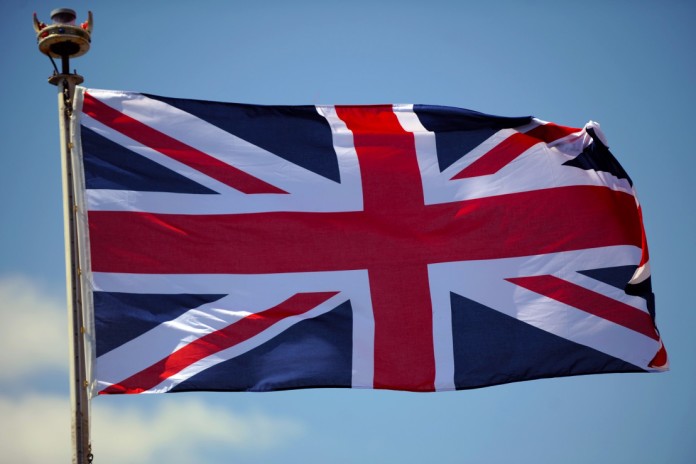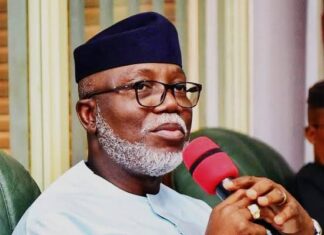The world woke up on Friday, June 24 to the news of the United Kingdom exiting European Union (EU), an organisation it bestrode like a colossus for more than 40 years in a love-hate relationship.
Leave supporters on College Green, Westminster in London, carried the day after Britons voted to quit the EU in an historic referendum which immediately threw Westminster politics into turmoil, and sent the virile pound sterling tumbling on global markets.
Britons seem to be prepared to live with the political, constitutional, diplomatic and economic consequences of their action for decades, going by the speech delivered by Prime Minister, David Cameron, on the choice which takes precedence over the personal desires of individual politicians.
Perhaps what confounded perceptive minds was the announcement by Cameron that he was resigning to pave the way for a new leadership to drive the fresh development.
In a speech he gave outside Downing Street in the morning of June 24, Cameron explained he would step down by October to ensure the UK has a “strong, determined and committed leadership.”
He added: “Over 33 million people from England, Scotland, Wales, Northern Ireland and Gibraltar have all had their say.
“We should be proud of the fact that in these islands we trust the people for these big decisions.
“We not only have a parliamentary democracy, but on questions about the arrangements for how we’ve governed there are times when it is right to ask the people themselves and that is what we have done.
“The British people have voted to leave the European Union and their will must be respected.
“I want to thank everyone who took part in the campaign on my side of the argument, including all those who put aside party differences to speak in what they believe was the national interest and let me congratulate all those who took part in the Leave Campaign for the spirited and passionate case that they made.
“The will of the British people is an instruction that must be delivered …. It’s why we delivered a fair, legal and decisive referendum in Scotland.
“And it’s why I made the pledge to renegotiate Britain’s position in the European Union and to hold the referendum on our membership and have carried those things out.
“I fought this campaign in the only way I know how, which is to say directly and passionately what I think and feel – head, heart and soul.
“I held nothing back, I was absolutely clear about my belief that Britain is stronger, safer and better off inside the European Union and I made clear the referendum was about this and this alone – not the future of any single politician including myself.
“But the British people have made a very clear decision to take a different path and as such I think the country requires fresh leadership to take it in this direction.
“I will do everything I can as Prime Minister to steady the ship over the coming weeks and months but I do not think it would be right for me to try to be the captain that steers our country to its next destination.”
Regardless of the political, economic, and diplomatic considerations marshaled by either Remain or Leave campaigners the lessons from the UK leaving the EU will resonate in established and emerging democracies around the world.
It has once more shown Nigerians in particular that respect for the wish of the people is the basis upon which democracy can be assessed as the vehicle to drive the rule of law and ensure peaceful coexistence, harmony and development.
The rancour-free manner in which both the UK and the EU went about the process of determining who stays or leaves the body, is commendable and will positively affect the relationship of EU members in the future.
What happened with the UK in the EU is a lesson to the Nigerian leadership which frowns at free speech despite constitutional provisions, and detests agitation by ethnic nationalities for self-actualisation.
The time has come for the Nigerian leadership to rethink the old strategy of stopping at nothing to decimate agitators over self-actualisation as we keep experiencing the killing of members of the Indigenous Peoples of Biafra (IPOB), Movement for Actualisation of the Sovereign State of Biafra (MASSOB) and other ethnic groups who feel they are not getting their fair deal in Project Nigeria.
We frown at a situation where the Nigerian leadership thinks certain issues cannot be discussed.
The National Assembly (NASS) should rise to the challenge of expunging the sections of the Constitution that are nebulous and stultify political and economic growth so that areas where referendum is required would be incorporated for Nigerians to assert their rights.
Our lawmakers should be tired of ad infinitum Constitution amendments or consider themselves beneficiaries of a political system that is not bringing anything to the table at international fora.
If the UK that colonised Nigeria can quit the EU where it is a critical stakeholder, who says ethnic nationalities cannot assert their inalienable right of freedom of association and self-actualisation?
Britain has shown that there is gain in dialogue. It did so last year when Scotland wanted to assert its independence.
We do not have any reason to spurn opportunities that require us to sit around a piece of mahogany and discuss matters that agitate our minds, no matter how minute.
Lessons ought be learnt from Cameron’s resignation. We commend him for resigning over idea he cannot see through, or rather was unpopular, but having the confidence that without him, Britain will still live its dream.
Cameron’s position is quite refreshing and at variance with the I-know-it-all disposition of Nigerian leaders, backed with a mentality of do-or-die.

- Advertisement -
- Advertisement -
Must Read
Aiyedatiwa imposes curfew on Owo as cultists kill five
Aiyedatiwa said only essential services, such as hospitals, emergency services, and law enforcement officers will be exempted from the curfew.












